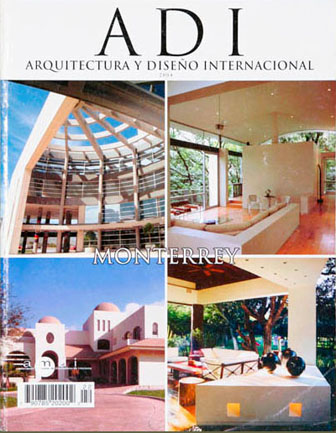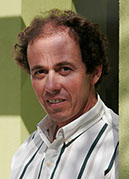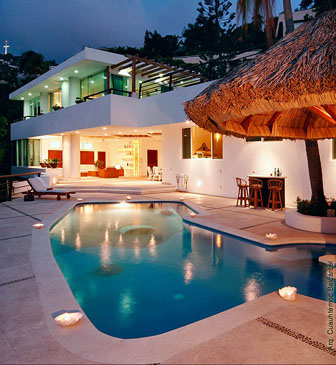Photographer’s background
How would you describe the type of photography you do?
Actually my work is architectural photography, primarily focused for its publication in specialized magazines. That means telling a story about the place with great emphasis on interesting architectural issues and solutions that will be of interest to other professionals. Often the focus is commercially oriented, looking to convince about the value of a property which often leads to a “false glamour”, showing something different from the perceived reality (added light, dramatic dawn etc…)
How long have you been doing this type of photography?
I have been in photography for about 30 years (man, I hate to tell those numbers, that’s the price to pay when you get over 50). First doing portrait and as a generalist, then to more professionally challenging interior shots of sets for catalogs of a big local ceramic tile manufacturer in Chihuahua City, Mexico, who made me a specialist for his needs. After moving 6 years ago to the bigger industrial city of Monterrey, I found a growing interest for my architectural work and gradually dropped other types of photography. Actually my main activity is in shooting projects for architects, institutions and companies, with the added value of promoting the shots to be published in magazines I collaborate with.
As photography reflects one’s personal situation, I’ll mention that I no more have kids at home, all three are married, one of them a successful food photographer.
What influenced you in deciding to become a photographer?
Being the son and grandson of photographers. My grandfather, Emmanuel Sougez, the French equivalent to Edward Weston in their times, was a fascinating person that made it difficult not to respond to such a call.
Why did you choose this type of photography?
A politician friend once told me: you don’t choose it, they choose you. Same here, people see and value your abilities, the markets looks for whoever resolves its needs, and hopefully you get the message and make good use of it for yourself. My offering is very well structured and I enjoy very much what I do, but initially it all came as a surprise.
Can you describe you career path up to this point?
That thing is getting personal! OK, I dropped high school as a rebel and started working a month here and there to get just enough money to travel around hitch-hiking. Then came the big opportunity, answering an ad for a photo assistant in Paris, logical as I always had been in photography through the family business. That was the key to getting a glamorous sight on photography, assisting car photographer Christian Occhipinti. I was bit.
Do you have another job or source of income?
Yes, renting the old place in Chihuahua as commercial places, what used to be my dream studio and eventually became a big white elephant.
What type of schooling do you have?
2nd year of high school unfinished.
What type of schooling would you recommend for someone entering this type of photography?
Art or graphing design to get strong basis that could be common with those who would hire you, plus assisting and much reading and experimenting to get the technical knowledge. Some business is sure necessary, just like for anyone on his own, which means more common sense than ASMP rules, and lots of charisma, the main ingredient to be successful in photography.
Are you happy doing what you do?
Yes, it is one of the most enjoyable professions. Few jobs give you such a mixture of daily renewal and getting access to most any place and activity. Plus it is still paid well over what anyone could hope for in an artistic activity.
What do you like most about your career / job?
The lifestyle and freedom, now that I work as freelance, dealing with people and the challenge each job is.
What do you dislike most about your job / career?
Being pushy when selling, sometimes getting little respect from stupid AD or people that consider themselves higher up in the scale.
On average, how many hours do you work per week?
Things are easy going right now, probably 50 or a bit more, but then is this work really? I see so many people mentally exhausted by the end of the day that I am not so sure I can complain enjoying what I do.
How much vacation did you take last year?
Over a month probably. What I try to do is combine work and vacations: if an assignment means a trip, I’ll take a few additional days off. Likewise, a nice destination is a call to consult the yellow pages for business opportunities.
How many weekends did you work last year?
Maybe ten, I’m not sure. I don’t care much about having to do it in weekends when it’s slow, but not so if it has been tedious for a while.
Is your work seasonal at all?
Not much.
How many people do you usually work with on a typical job?
Often alone, sometimes with my wife helping dressing up interiors, rarely with the customer, and I sure would love to find someone to assist when needed but that seems impossible.
What types of non-photography duties are you responsible for?
You name it, all what is needed to keep a business going. Unfortunately that keeps me busy 80% of my time, but as long as shooting is well paid, the situation is manageable.
What characteristics / skills make you good for this type of photography?
Interest in construction’s aesthetics and techniques? Composition? I’m not sure really, the customers will have to answer that one.
Describe your primary work environment.
Office and location work, primarily out of town as I have moved one hour away from Monterrey to the smaller and much nicer Saltillo. My target area is northern Mexico.
Do you do much traveling for your profession?
Perhaps 50%.
If you didn’t do this type of photography, what other type of photography would you prefer to do?
Commercial, industrial, location portrait.
Photography Career Competition / $
Is your market local, or national?
Half and half, local being Monterrey, an hour away.
How many people in your town do what you do?
None in-town, in Monterrey at least one does only architecture that I know of and is much busier than I am.
Who is, or how would you describe your target markets?
Architects and constructors in northern Mexico.
To what do you attribute your success?
Success or being well off? I used to be financially very successful and those were harder times to live. I consider now as a better time, not so much seeking success but rather to make life enjoyable and at the same time keeping busy enough to make it sustainable, which happens to be a good combination. Being more concrete, I am good at managing, marketing, technically proficient, and with interest in related people’s techniques, like graphic design, or architecture.
What would you say is the biggest mistake most photographers make in your type of business?
Making business growth a priority. Having been in photography all my life I know the profession responds to its own curve, where the first years will be very challenging and enjoyable, the mature time will give a good financial situation, and that should be focused to prepare for a decline.
What would you estimate as an income range for the type of photography you do?
Normal expectation might be between US$ 3,000 to $8,000 a month.
What would you estimate as the average income for the type of photography you do?
Probably $4,000, but it depends much on where you are located. Bigger cities usually will have such a high cost of life that you will need twice the income compared to living in a smaller town.
What do you think of the future of your profession?
Pictures will always be in need, doing them is ever easier so it is getting done by most anyone, but there will always be room for professionals doing part of it. The type of photography and its use determines if there is a need or an added value in having it done expensively by a professional. The profession will always be subject to a moving market but niches can be created by adding value to the process. I have been amazed myself to find out that simply linking my photography with having it published in magazines all of a sudden made it more desirable and valuable. That is where I consider younger people to be a hugely valuable resource for business inspiration into renewing oneself, as they have no set ideas and will create their own solutions, instead of looking backward and copy.
Would you recommend a career in photography to your friend or child? Why?
I have, and my kid is doing well and enjoying it a lot, hardly a situation he could have reached at 23 with any profession. Take a look: www.michellubbert.com
Is there any specific advice you would give to someone entering into your field?
Have that desperate need to get into photography which has been the common trait in all of us. Specialize in whatever you find most passionate.
Continuing Education for a career in Porfessional Photography
What do you do to advance your skills?
Books, many books. Nowadays internet is the most valuable tool to keep in touch with your peers at the level you want through sites like PDN forum, something impossible a few years back unless you lived in a great city.
What industry publications do you subscribe to?
PDN, sometimes American Photo, and whatever I will find of interest in racks I may buy.
What on-line forums do you frequent?
PDN mostly. Fred Miranda, Rob Galbraith and others I have seen but somehow do not find so much interest in them. DP Review is a site I look at first thing in the morning also.
Do you intend to continue your education in some way?
What trade shows / seminars have you attended or plan on attending?
Mostly none any more, they leave me frustrated. Internet keeps me informed enough.
Hobby questions for the porfessional photographer
What’s type of cameras do you use most?
Canon 5d.
What type of computer do you use most?
Mac.
Does most or your work involve available light, on-camera flash, studio strobe, or hot lights?
Mostly available light.
What type of computer software are you proficient with?
Photoshop, AppleWorks for office use, Freehand seldom, color management and profiling software.
Are there any photographers in your field that you particularly admire?
So many good photographers it is amazing! Those very famous used to be the only ones to be seen, now most everyone can be found on the web, from anywhere, and that means lots and lots of talents exposed.


